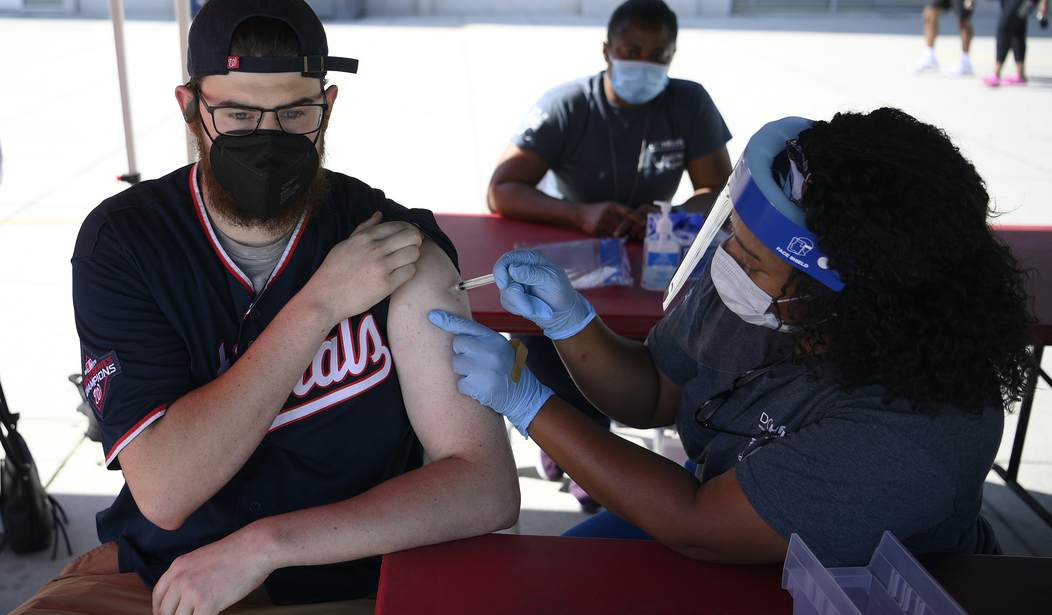Israel was the first nation to report a suspicion that the Pfizer vaccine may cause myocarditis. The CDC eventually acknowledged the risk, especially in young men aged 16-24. Estimates ranged from a case rate of 1 in 3,000 to 1 in 6,000, depending on the data set used. Health authorities and researchers have tried to say the risks for cardiac complications are similar between the vaccine and the infection for young males. A new Israeli study debunks that assertion.
This assertion is contradicted by the findings from a recent study conducted by Israeli researchers, using data from Israel National Emergency Medical Services (EMS) related to “cardiac arrest and acute coronary syndrome EMS calls in the 16–39-year-old population” between 2019 and 2021. This enabled them to compare baseline (pre-COVID epidemic) to COVID epidemic without vaccines, to COVID epidemic following widespread vaccine takeup.
An increase of over 25% was detected in both call types during January–May 2021, compared with the years 2019–2020. That is to say, “increased rates of vaccination … are associated with increased number of CA [cardiac arrest] and ACS [acute coronary syndrome].” By contrast, the trial “did not detect a statistically significant association between the COVID-19 infection rates and the CA and ACS weekly call counts.”
While the dangers of myocarditis for young males have gained widespread attention, this study found a larger increase in CA and ACS events among females that was linked to COVID vaccination.
The study’s authors also noted that studies in Germany and Scotland found similar patterns. Post-publication, the authors are being challenged on the methods they used. One might assume their conclusion, not their calculation, is the problem. The researchers used a nationwide data set combined with national health system vaccination and infection information and standard regression models. Their conclusions violate vaccine orthodoxy even though they were careful to state, “While the benefits of COVID-19 vaccination are clear, especially for populations at great risk of developing serious and potentially life-threatening illness, it is important to better understand the potential risks to minimize potential harm.”
Related: Best. News. Ever. About Dr. Fauci
Once research confirmed the link between myocarditis and the mRNA vaccines, many physicians questioned their use in young men. The contention that cardiac issues occurred more frequently following COVID-19 infection also never squared with COVID hospitalization data for people aged 16 to 24. During an FDA Vaccines and Related Biological Products Advisory Committee hearing on booster shots in September, members provided some factual data confirming a risk-benefit profile in young men.
Dr. Arnold Monto, the acting committee chair, asked Dr. Doran Fink, deputy director of the clinical side of the FDA’s Division of Vaccines and Related Products Applications, if it was possible to determine at what age the risk of myocarditis ceased to be a problem. At the time, Fink’s complete answer was astonishing.
Fink stated, “If you look at the healthcare claims data, you see that there is evidence of some attributable risk at all age groups, although, the older you get, the higher the risk of complications from COVID that offset the risk of myocarditis. So, when you look at the balances of risk versus benefit, what we really start to see is the risk of myocarditis being higher [than COVID-19] in males under age 40.”
Following the hearing, almost no media outlets questioned the nation’s health experts or the administration about Fink’s precise risk-benefit analysis. It was memory-holed, just like so many nuanced discussions about all aspects of COVID-19. President Joe Biden had just announced a sweeping vaccine mandate on September 9, 2021, covering millions of men under 40. Multiple studies confirm that vaccination always carried more risk than the virus for men under 40.
An abundance of caution would have been warranted in an ethical public health response when data identified a risk factor in the working-age and childbearing population. Every man under 40 should have been provided informed consent about the potential risk and afforded a choice to receive the vaccine.
With the continued disclosure of Pfizer’s trial data, how many other groups deserved informed consent about potential vaccine harms remains to be seen. It also remains to be seen if anyone will ever be held accountable for vaccine injuries that occurred after the data was available.










